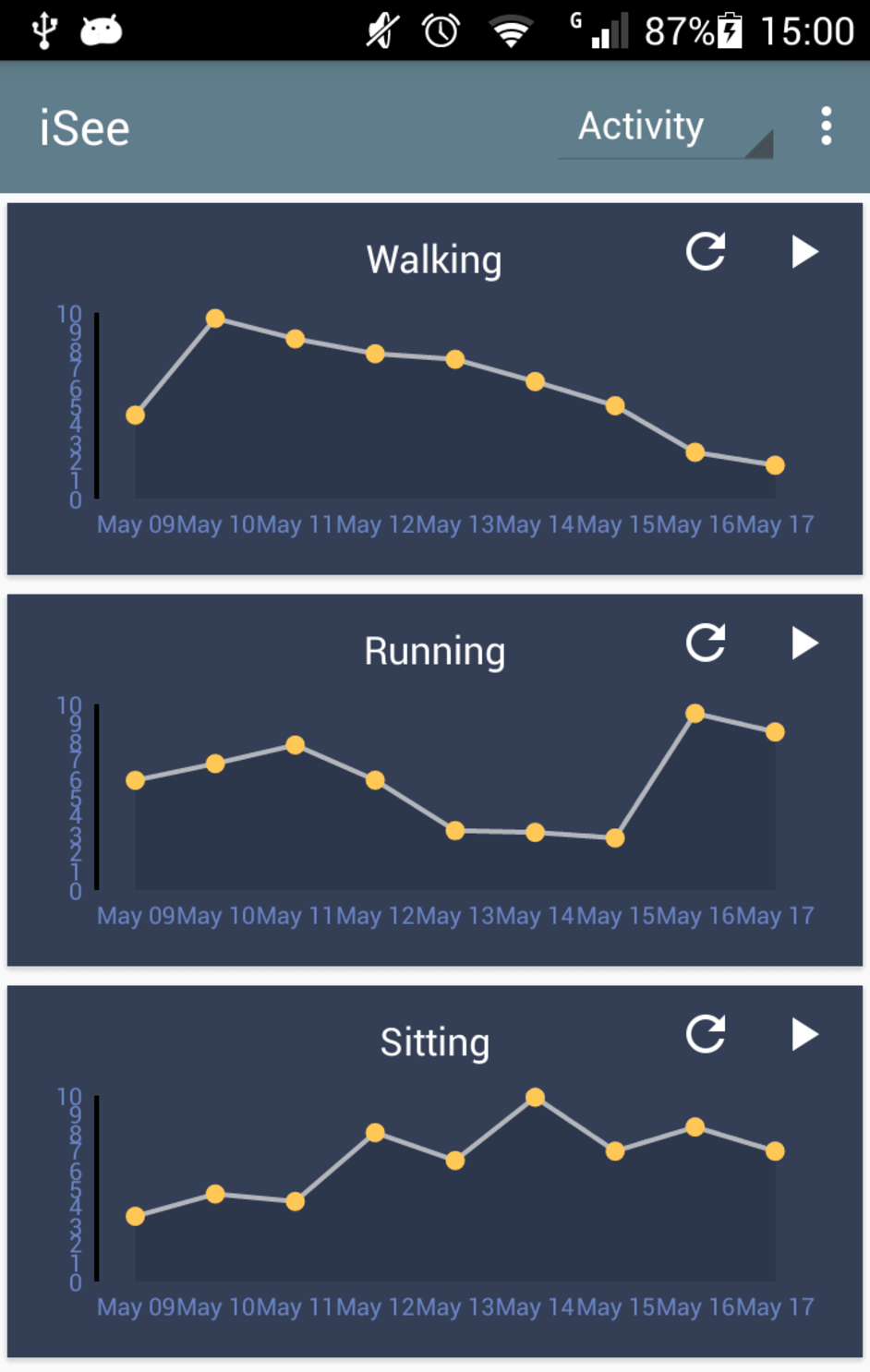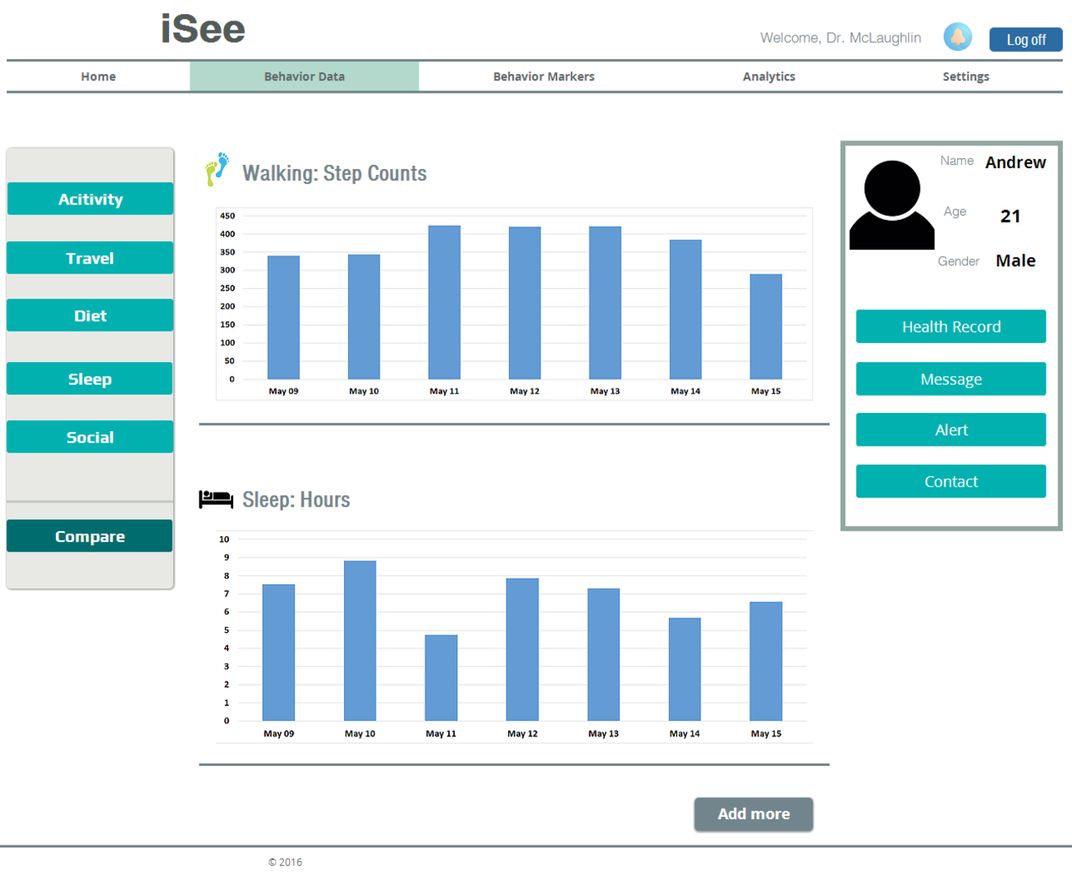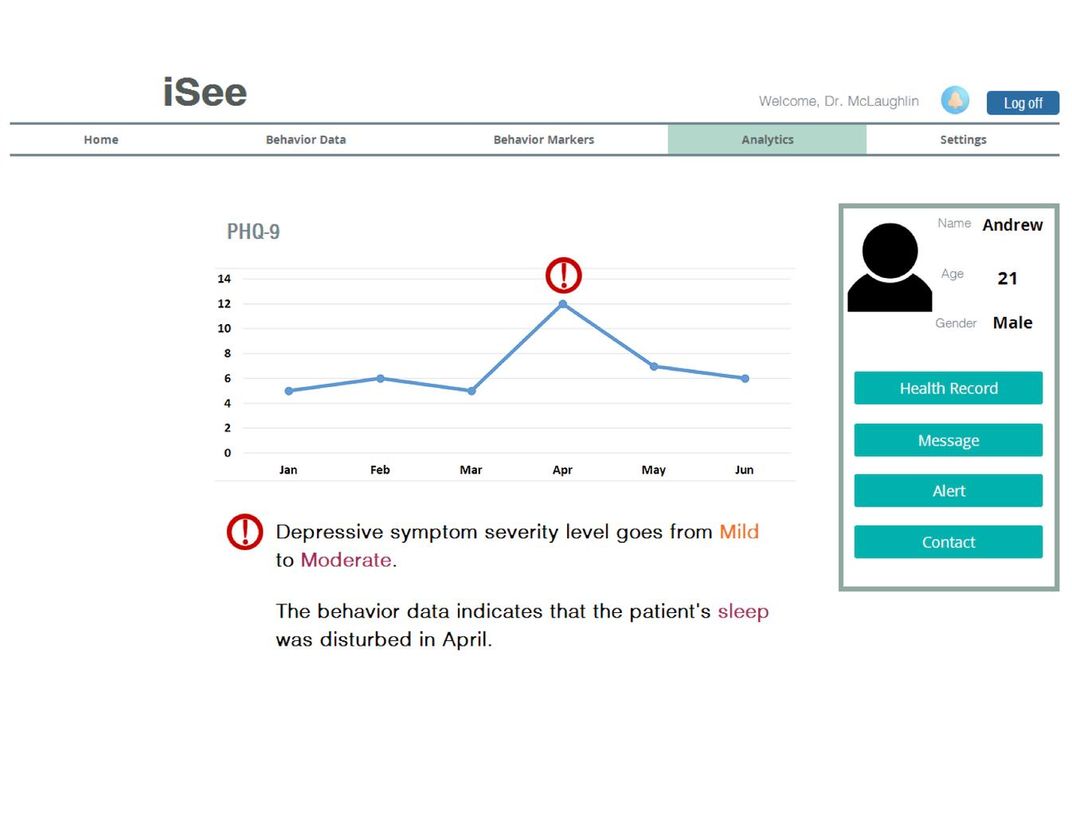How Mobile Technology Can Help Universities Combat Depression
Using sensors on smartphones and smartwatches can shed light on patients’ symptoms, even identifying ones they didn’t notice or share with counselors
/https://tf-cmsv2-smithsonianmag-media.s3.amazonaws.com/filer/fb/3b/fb3bb991-3a6f-471e-8e2b-e519d1b58851/image-20170109-29708-axnfji.jpg)
Depression is the leading mental health issue on college campuses in the U.S. In 2015, a survey of more than 90,000 students at 108 American colleges and universities found that during the previous year, more than one-third of them had felt so depressed at some point that it was difficult to function. More than two-thirds had felt hopeless in the preceding academic year.
Today’s college students are dealing with depression at an alarmingly high rate, and are increasingly seeking help from on-campus mental health services. Depression is also an underlying cause of other common problems on college campuses, including alcohol and substance abuse, eating disorders, self-injury, suicide and dropping out of school.
But university counseling centers, the primary sources for students to get mental health care, are struggling to meet this rising demand. First, it can take a long time for clinicians to gain a full picture of what students are experiencing: Depressed students’ accounts of their symptoms are often inaccurate and incomplete.
In addition, budget constraints and limited office hours mean the number of clinicians on campus has not grown, and in some cases has shrunk, despite increasing demand. There simply are not enough university clinicians available to serve every student – and few, if any, at critical times like nights and weekends. The number of students on counseling waiting lists doubled from 2010 to 2012. This can leave students waiting long periods without help. In the worst cases, this can have lifelong – or life-ending – consequences.
Using mobile technology for mental illness diagnosis and treatment is becoming a hot research topic nowadays because of the pervasiveness of mobile devices and their behavior-tracking capabilities. Building on others’ work, we have found a way to enhance counseling services with mobile technology and big data analytics. It can help students and clinicians alike, by offering a new tool for assessing depression that may shed increased light on a condition that is challenging to study.
Measuring well-being

We are developing a system for tackling this campus mental health crisis, called iSee. When it’s ready to be deployed, students who participate in the program will need to carry a smartphone and a smartwatch. Data collected by those devices are transmitted to, and analyzed by, a computer system. This lets the relatively few counselors keep better track of more students – extending service to more students in need.
The smartphone and smartwatch have several built-in sensors:
- a GPS sensor, to track geographical locations,
- a light sensor, to measure ambient light levels,
- an accelerometer, to capture physical movements, and
- a touchscreen, to monitor the frequency and duration of users’ interactions with their phones, such as browsing social media.
These sensors capture many of the students’ daily activities that can help indicate mental well-being, including walking or other physical exercise, sleeping habits, social interaction and how often they go to class or local businesses – or whether they stay home or in a dorm room all day long.
iSee can offset the inherent inaccuracies and incompleteness in patients’ self-reporting of their depression. It can even observe symptoms students themselves don’t notice or think to mention to a counselor. And because the data are continually collected, it can identify moments of vulnerability and resilience and provide a picture of a student’s progress over time. That can help not only monitor but also treat depression.
Improving counseling service

Our work builds on the algorithms we have designed that analyze mobile device data to detect depression. In a 2015 study, we showed that the severity of a person’s depression can be predicted by monitoring their GPS locations and how often they use their phones: People with more severe depression symptoms tended to move from place to place less and stay at home more than people with fewer depression symptoms – or none at all. The movements of more severely depressed people also tended to be less regular, and were more likely to use their phones frequently and for longer durations. For iSee, we will incorporate data from the other sensors, translating the raw measurements into models of how the students are behaving.
Then iSee will look for behavior patterns that can relate to mental health problems – such as staying home all the time or getting irregular sleep. By sharing this information with both the patient and the counselor, iSee will help better describe, and more accurately portray the severity of, an individual’s symptoms.

Treating depression
In addition, iSee can sense in real time when a student’s behavior matches certain symptoms of depression – such as being socially isolated for three days. If that happens, the app can automatically deliver in-the-moment therapies to help, without relying on the patient, or even the clinician, to initiate. For example, if iSee notices a socially isolated person is alone at home on a sunny Saturday afternoon, it might suggest calling some friends or going out for a walk.
That is exactly the sort of suggestion a counselor would make. Unfortunately, counselors usually can only make these suggestions in hindsight during therapy sessions. The smartphone can provide that assistance in the moment when help is needed.
By finding ways the many sensors on smartphones and smartwatches can shed light on people’s daily lives and habits, and by analyzing that data in ways that highlight potential mental health problems, we can help college students stay healthier and reduce the workload on overtaxed professionals at the same time.
This article was originally published on The Conversation. Read the original article.
Mi Zhang is an Assistant Professor of Electrical and Computer Engineering at Michigan State University.
David Mohr is the Director at the Center for Behavioral Intervention Technologies (CBITs) Professor of Preventive Medicine (Behavioral Medicine), Medical Social Sciences and Psychiatry and Behavioral Sciences at Northwestern University.
Jingbo Meng is an Assistant Professor of Communication at Michigan State University.